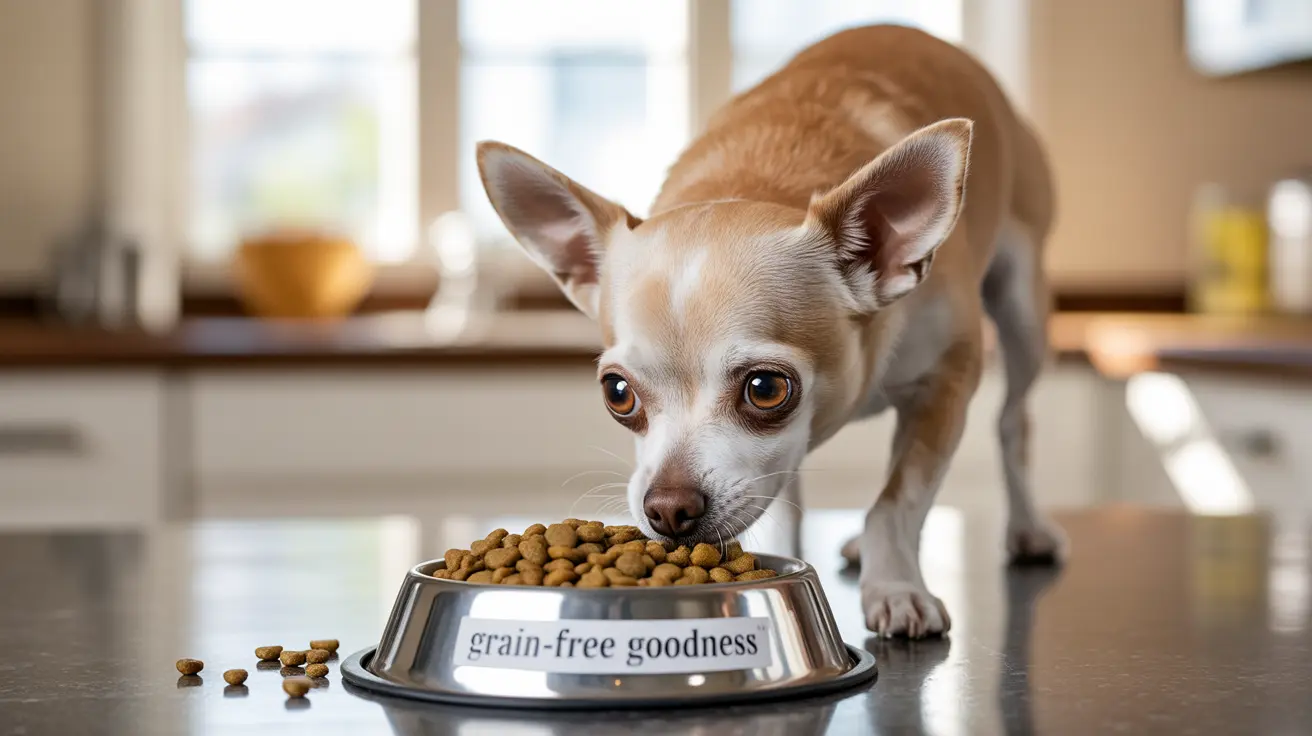As pet owners increasingly focus on their dogs' nutrition, the question "is grain free good for dogs" has become a hot topic of debate. While grain-free diets have surged in popularity over the past decade, recent research and veterinary findings suggest these trendy diets may not be the optimal choice for most dogs. Let's explore the facts, benefits, and potential risks of grain-free dog food to help you make an informed decision for your furry friend.
Understanding Grain-Free Dog Food
Grain-free dog food excludes common grains like wheat, corn, and rice, replacing them with alternative carbohydrate sources such as peas, lentils, chickpeas, and potatoes. While marketing often positions these diets as more "natural" or "healthier," it's important to understand that this isn't necessarily true for most dogs.
The Heart Health Connection
One of the most significant concerns about grain-free diets is their potential link to dilated cardiomyopathy (DCM), a serious heart condition. The FDA has been investigating hundreds of cases where dogs on grain-free diets developed DCM, including breeds not typically prone to this condition. Over 90% of reported cases involved dogs eating grain-free foods containing high levels of peas, lentils, or potatoes.
Debunking Common Grain-Free Myths
Many pet owners choose grain-free diets believing their dogs are allergic to grains or that grains are unnecessary fillers. However, veterinary research shows that true grain allergies in dogs are extremely rare. Most food allergies in dogs are actually triggered by protein sources like beef, chicken, or dairy products.
The Truth About Dog Food Allergies
Less than 1% of dogs have genuine grain allergies or intolerances. Before switching to a grain-free diet, it's crucial to work with your veterinarian to determine if your dog truly needs this dietary modification. Many perceived grain sensitivities may actually be related to other ingredients or health issues.
Making the Right Choice for Your Dog
When considering your dog's diet, focus on these key factors:
- Choose foods that meet AAFCO nutritional standards
- Consult with your veterinarian before making dietary changes
- Monitor your dog for any health changes, especially if on a grain-free diet
- Consider your dog's specific health needs rather than following trends
Frequently Asked Questions
Is a grain-free diet genuinely healthier for dogs compared to grain-inclusive diets?
No, grain-free diets are not inherently healthier for most dogs. In fact, grains can provide important nutrients, fiber, and energy. Unless your dog has a diagnosed grain sensitivity, there's no scientific evidence suggesting grain-free diets offer health benefits over traditional grain-inclusive foods.
Can feeding my dog a grain-free diet increase the risk of heart disease like dilated cardiomyopathy (DCM)?
Yes, research has shown a concerning correlation between grain-free diets and DCM in dogs. The FDA has documented hundreds of cases where dogs on grain-free diets developed DCM, with many cases improving after switching back to grain-inclusive foods.
Are grain-free dog foods necessary for dogs with allergies or food intolerances?
Not usually. True grain allergies are extremely rare in dogs. Most food allergies are actually related to protein sources like beef or chicken. If you suspect your dog has food allergies, work with your veterinarian to properly identify the allergen before switching diets.
How can I tell if my dog might benefit from a grain-free diet or if it could be harmful?
The best way to determine if your dog needs a grain-free diet is through veterinary consultation. Look for signs of food sensitivities like chronic itching, digestive issues, or ear infections, but don't assume grains are the cause without professional diagnosis.
What should I look for in a grain-free dog food to ensure it is nutritionally balanced and safe?
If you must feed a grain-free diet, choose foods that meet AAFCO standards, come from reputable manufacturers with veterinary nutritionists on staff, and avoid products with high levels of peas, lentils, or potatoes as main ingredients. Always consult your veterinarian for specific recommendations.
Conclusion
While grain-free diets may be necessary for the small percentage of dogs with diagnosed grain sensitivities, they're not required or beneficial for most dogs. Current veterinary evidence suggests that grain-inclusive diets are generally safer and more appropriate for the majority of dogs. Always prioritize your pet's individual health needs over marketing trends, and consult with your veterinarian before making significant dietary changes.






